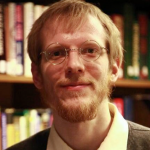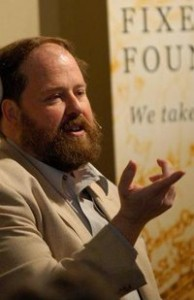
Deprecated: trim(): Passing null to parameter #1 ($string) of type string is deprecated in /home/aoiusa/public_html/wp-content/plugins/sexybookmarks/public.php on line 388
Deprecated: trim(): Passing null to parameter #1 ($string) of type string is deprecated in /home/aoiusa/public_html/wp-content/plugins/sexybookmarks/public.php on line 394
Deprecated: trim(): Passing null to parameter #1 ($string) of type string is deprecated in /home/aoiusa/public_html/wp-content/plugins/sexybookmarks/public.php on line 400
Source: Ehtika Politika |
In his recent First Things article, “Is, Ought, and Nature’s Laws,” David Bentley Hart puts forth a formidable and subtle critique of the use, “by certain self-described Thomists,” of the natural law tradition in public discourse. While Hart does not deny “a harmony between cosmic and moral order,” he takes issue when “the natural law theorist insists that the moral meaning of nature should be perfectly evident to any properly reasoning mind, regardless of religious belief or cultural formation.”He thus contends that (1) such natural lawyers, despite best intentions, ultimately fall prey to David Hume’s critique that one cannot derive an “ought” from an “is”; that (2) natural law reasoning depends upon a person’s prior acceptance of certain metaphysical commitments (e.g. a teleological world and a harmony between the cosmic and moral orders); that (3) universal moral norms are more often “artifacts of cultural traditions” derived from historical experience rather than dictates of reason discerned in nature; and that (4) due to the dissonance between the necessary metaphysical assumptions that make natural law compelling and the common, secular assumptions of our present age (i.e. “a mechanistic understanding of the physical world, a neo-Darwinian view of life, and a voluntarist understanding of the self”), natural law-based public discourse today “is a hopeless cause.”
On the one hand, I am sensitive to Hart’s critique—morality is more than solely what can be deduced by a properly reasoning mind, as some seem to believe. Nevertheless, while I would not necessarily describe myself as a Thomist (like Hart, I am an Orthodox Christian), I take issue with his critique for (1) failing to account for the role of conscience in traditional natural law theory and for (2) confusing the role of reason in natural law theory as a result.
That primarily conscience, in addition to reason, testifies to the dictates of the law of nature constitutes an essential presupposition of the natural law tradition. As St. Paul puts it, even apart from knowledge of any written, divine revelation, people “show the work of the law written in their hearts, their conscience also bearing witness, and between themselves their thoughts accusing or else excusing them” (Romans 2:15). According to St. John Chrysostom, the natural law is not so much something discerned outside of the self as within: “when God formed man, he implanted within him from the beginning a natural law.” He continues to note the testimony of conscience: “And what then was this natural law? He gave utterance to conscience within us; and made the knowledge of good things, and of those which are the contrary, to be self-taught” (Homilies on the Statues 12.9). He continues to argue—as is the classical understanding—that the content of the natural law accords, at least, with the second table of the Decalogue.
If Hart was correct that knowledge of the natural law comes only through reflection upon the natural world by reason, then Hume’s is/ought objection might apply. However, the traditional conviction is that—in addition, perhaps, to the “uncanny voices” of history that Hart highlights—there exists within the human heart the uncanny voice of conscience. Natural law begins here, with an “ought” of intuition, the “ought” of conscience.
Indeed, people do not need much explanation, if any, to agree that killing innocent persons, taking what is not theirs, deceiving the trusting, and so on—is wrong. People may disagree about the specific application of the dictates of natural law, but even our contemporary culture currently acknowledges the existence of conscience. People who live as if they had no conscience our modern society rightly classifies as sociopaths and, if necessary and possible, institutionalizes them.
Thus, already, I am not convinced that Hart’s objections hold up. (1) Natural law, known through the “ought” of conscience, does not, therefore, require deriving an “ought” from an “is”; (2) on the same basis, natural law does not require any further prior metaphysical commitments, only an acceptance of the basic reliability of the voice conscience in the human heart; (3) since conscience testifies to universal moral norms, such norms cannot wholly be reduced to cultural and historical factors; and lastly, (4) since there is no insurmountable barrier of metaphysical perspective in our contemporary context to acknowledging the existence of conscience, there is, therefore, no contextual barrier to appealing to the dictates of natural law in public policy discussions. Of course, in our sin we are capable of ignoring and dulling the sense of conscience within us, but that does not negate its usefulness.
But what of reason? To be charitable, Hart may still, at this point, have a case to be made. What relation does reason have with natural law, given the primacy of conscience?
In this case, I find the analogy of vision to be quite helpful. There are many reasons why I may be incapable of seeing something accurately in the physical world. For example: I may be nearsighted; I may be colorblind; or I may be entirely blind. In fact, I actually have firsthand experience with the first two. In the case of my nearsightedness, the deficiency could be remedied with corrective lenses or, perhaps, with Lasik eye surgery. (I am content with my glasses.) In the case of my colorblindness, barring a miracle I must rely upon the judgment of others to gain accurate knowledge of the world I observe in its chromatic element—my wife helps me match my clothes, for example. Lastly, if I were totally blind, it would, indeed, take supernatural intervention alone for me to see anything at all.
Much as, according to Philo of Alexandria, “encyclical knowledge of music and logic” is the “handmaiden” of virtue and wisdom (On Seeking Instruction 2), so also reason is the handmaiden of conscience. Like corrective lenses for deficient vision, reason can help guide some people to see the truth of the moral order more clearly. This is precisely what Hart’s “self-described Thomists” seek to do, to guide people with the aid of reason to see how the dictates of conscience apply in some specific area of public policy. Whether or not they take the time to focus on the role of conscience at all does not negate their tacit reliance on it, consciously or not. They are, thus, justified in doing so, so far as deficient moral vision is a problem of insufficient understanding.
However, I see no reason why the problem, in some cases, might be otherwise. For example, I can rationally understand that purple is the combination of blue and red; and I can know, by the testimony of others, that certain objects are, in fact, purple; but I am nearly—if not wholly—incapable of seeing the color purple with my own eyes. To extend the analogy to morality and public discourse, a person may first need to be shown that their moral vision itself is irreparably deficient. This, again, might be able to be done with the aid of reason, but not with the same line of argumentation typically taken by Hart’s unnamed natural lawyers. To do so would be like offering a colorblind person corrective lenses. For that he would be right to criticize them, but he does not take such a line of objection.
Finally, one may, like the sociopath, be morally blind, deaf to the uncanny voice of conscience within the human heart. In this case Christians know the answer, and it is not a matter of rational discourse. In most cases, there is no operation or device by which the blind can see—typically only the power of God can open the eyes of the blind. In this case Hart’s criticism stands, but, given the existence of conscience, his argument would require that such blindness be far more widespread, when, in fact, some may simply be morally colorblind or nearsighted.
In this light, contra Hart, I would argue that Christians ought to affirm the natural law on the basis of conscience and employ well-reasoned arguments in support of the specific application of its dictates in areas of conflict in the public square with the hope that some may be able to see the truth or, at least, their own deficiency. However, with Hart, I would also affirm the need for supernatural enlightenment. We must not neglect evangelism but testify through our lives to the Truth incarnate with both hope and caution, recalling the words of Christ himself: “For judgment I have come into this world, that those who do not see may see, and that those who see may be made blind” (John 9:39).


